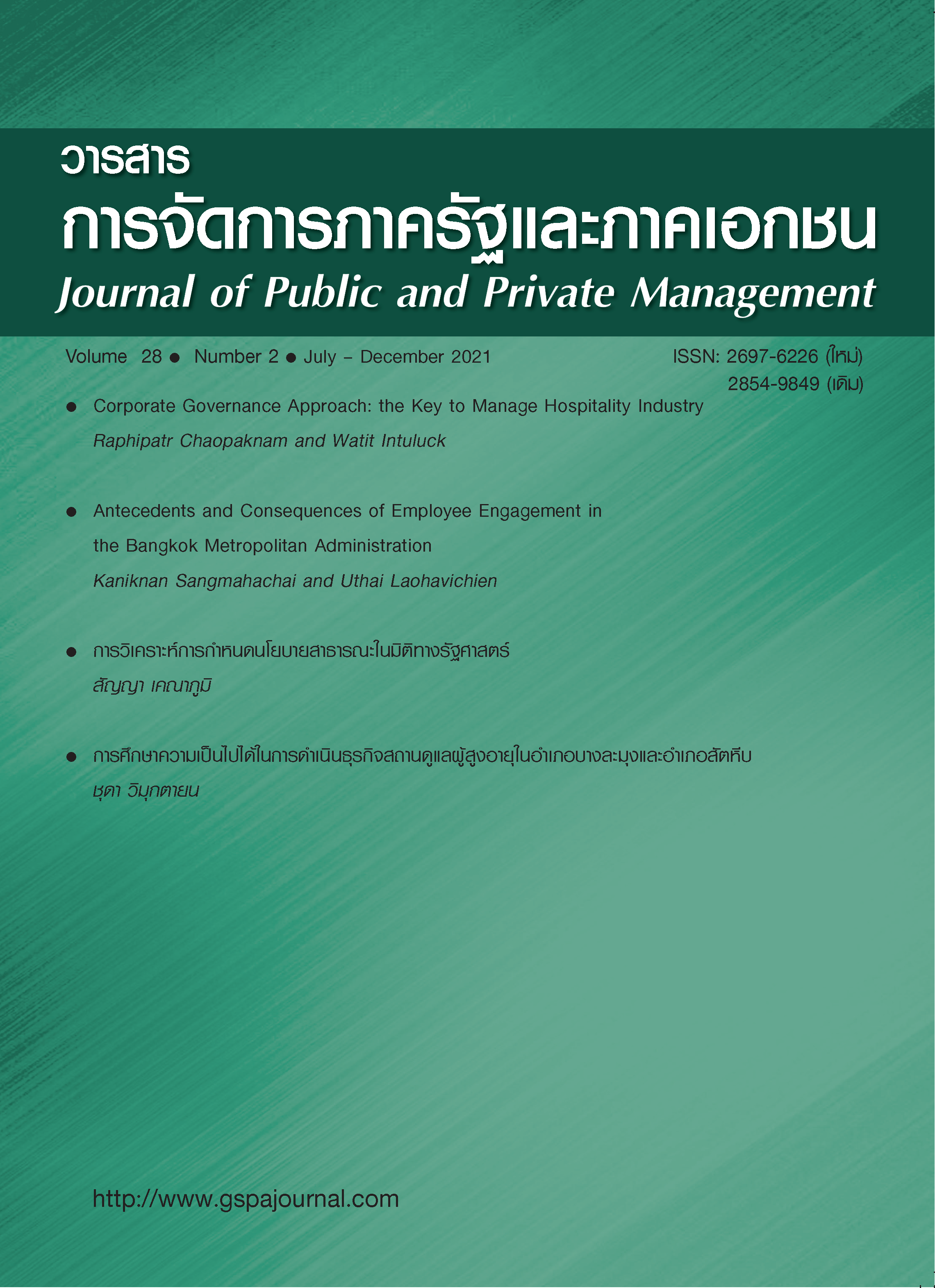Antecedents and consequences of employee engagement in The Bangkok Metropolitan Administration
Abstract
In this dissertation, the employee engagement model for Thai public sector is developed. Three organizational factors are examined for being antecedents of employee engagement: ethical leadership, procedural justice, and employee empowerment. The researchers expect that these three factors will positively affect employee engagement, and in turn, employee engagement will positively affect work performance.
In this cross-sectional research investigation, the researchers used a quantitative survey research approach. A total of 854 subjects in the sample population were randomly selected from personnel employed in fifty districts of the Bangkok Metropolitan Administration (BMA). The research instrument was a questionnaire, and the researchers conducted the data analysis using structural equation modeling (SEM) methods.
The findings showed that ethical leadership and employee empowerment exhibited positive direct relationships with employee engagement at a statistically significant level of .05. However, procedural justice did not correlate with employee engagement and performance. Employee engagement was highly correlated with performance. An analysis of the mediating variable of employee engagement showed that employee engagement was not a mediating variable in the relationship between ethical leadership and performance. However, employee engagement was a partial mediating variable in the relationship between employee empowerment and performance.
Downloads
Published
How to Cite
Issue
Section
License
Copyright (c) 2021 Journal of Public and Private Management

This work is licensed under a Creative Commons Attribution-NonCommercial-NoDerivatives 4.0 International License.



